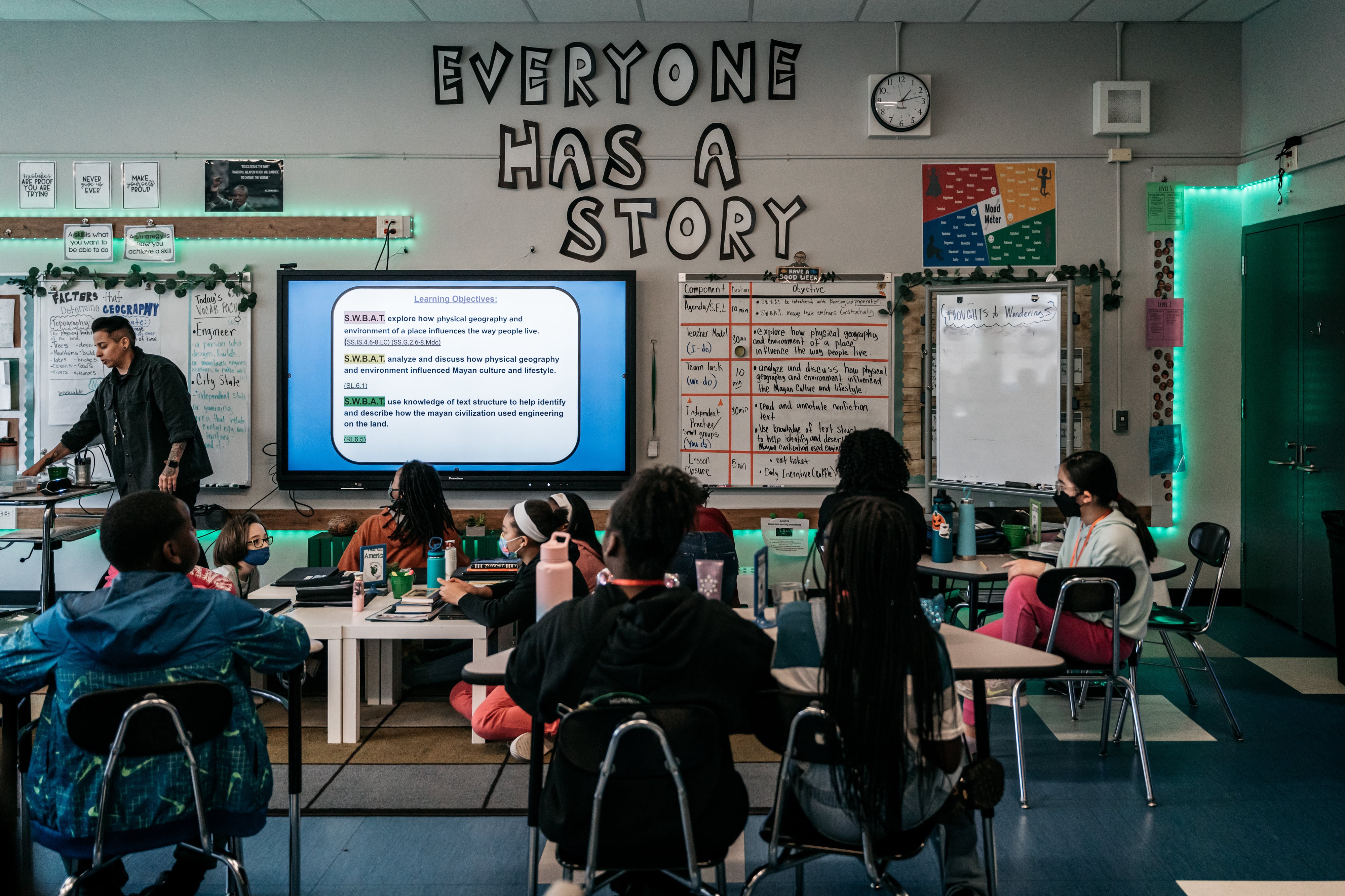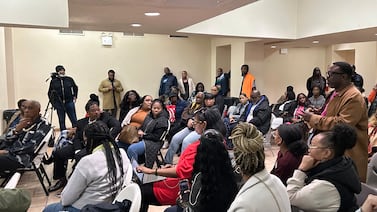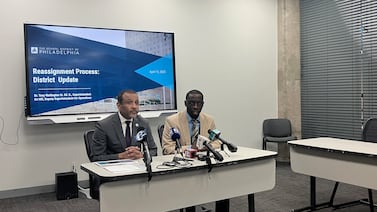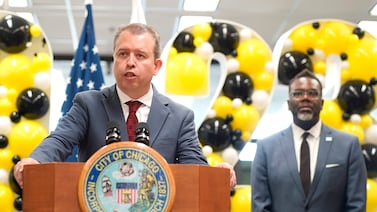Sign up for Chalkbeat Chicago’s free daily newsletter to keep up with the latest education news.
Elementary schools will get one teacher for every 26 students next year and high schools will get one teacher for every 21 students, according to details about the new budget formula replacing student-based budgeting shared by Chicago Public Schools officials.
Those ratios will decline for higher-needs schools — potentially providing them with additional teachers — and all schools will be staffed with at least 10 classroom teachers for the 2024-25 school year, officials told Local School Council members Thursday night.
The numbers discussed by CPS officials shed additional light on how the switch to a new position-based budget formula that’s partially based on needs will affect schools, teachers, and students. However, the student-to-teacher ratios outlined by officials are not necessarily equivalent to class sizes.
Principals are slated to get detailed school budgets with actual positions and dollar amounts on Monday.
Officials said the total amount of funding that is allocated to schools “will not be cut,” but “individual schools’ funding levels may change.”
The $9.4 billion budget for the current 2023-24 school year categorized $4.8 billion as school-level funding.
CPS plans to use a recently updated Opportunity Index, which was created during the pandemic, to measure a school’s need and distribute resources more equitably. It’s based on how many students with disabilities, English learners, and students from low-income households are enrolled, and the socioeconomics of the surrounding neighborhood, among other factors. Schools with higher scores are considered to have higher needs.
Every CPS school will get a principal, an assistant principal, a clerk, at least one counselor, and at least one part-time school assistant. The number of counselors and assistants will increase at schools with more students or more needs; elementary schools will get an additional counselor for every 600 students, while high schools will get an additional counselor for every 500 students. High schools with more than 300 students will also get an athletic director.
Special education teachers and paraprofessionals will continue to be funded centrally.
Elementary schools will be allocated at least three “holistic” teachers for specialty classes, such as art, physical education, or foreign language. The formula will provide one specialty position for every five core classroom teachers at schools with more students.
“We believe that the daily experience for our students will be joyful, affirming and meet students’ social and emotional needs, and prioritizes historically underserved students,” said CPS Chief Budget Officer Mike Sitkowski.
Principals will still get flexible or discretionary money in addition to the base number of positions, officials said. Elementary schools will get at least $365 per student and high schools will get at least $1,095 per student. More money per student is added based on a school’s Opportunity Index score.
The switch away from budgeting money to schools based on student enrollment to a system that promises minimum staffing based on need and enrollment isn’t the only big fiscal transition coming up for CPS.
Next year’s budget will be the last to benefit from federal COVID money, and officials have said there’s about $300 million remaining for the coming school year. Those relief dollars will be used to help plug the district’s projected budget deficit and will help reduce the shortfall to $391 million, officials have said.
In order to further reduce the budget gap, the district is looking for cuts at the central office level, instead of making cuts to schools to balance the budget, officials said. CPS is also seeking a larger funding increase from the state.
Sitkowski said principals will receive their school budgets next week. Local School Councils will need to vote on them so principals can submit them back to the district’s budget office in early May.
Reema Amin contributed.
Becky Vevea is the bureau chief for Chalkbeat Chicago. Contact Becky at bvevea@chalkbeat.org.







